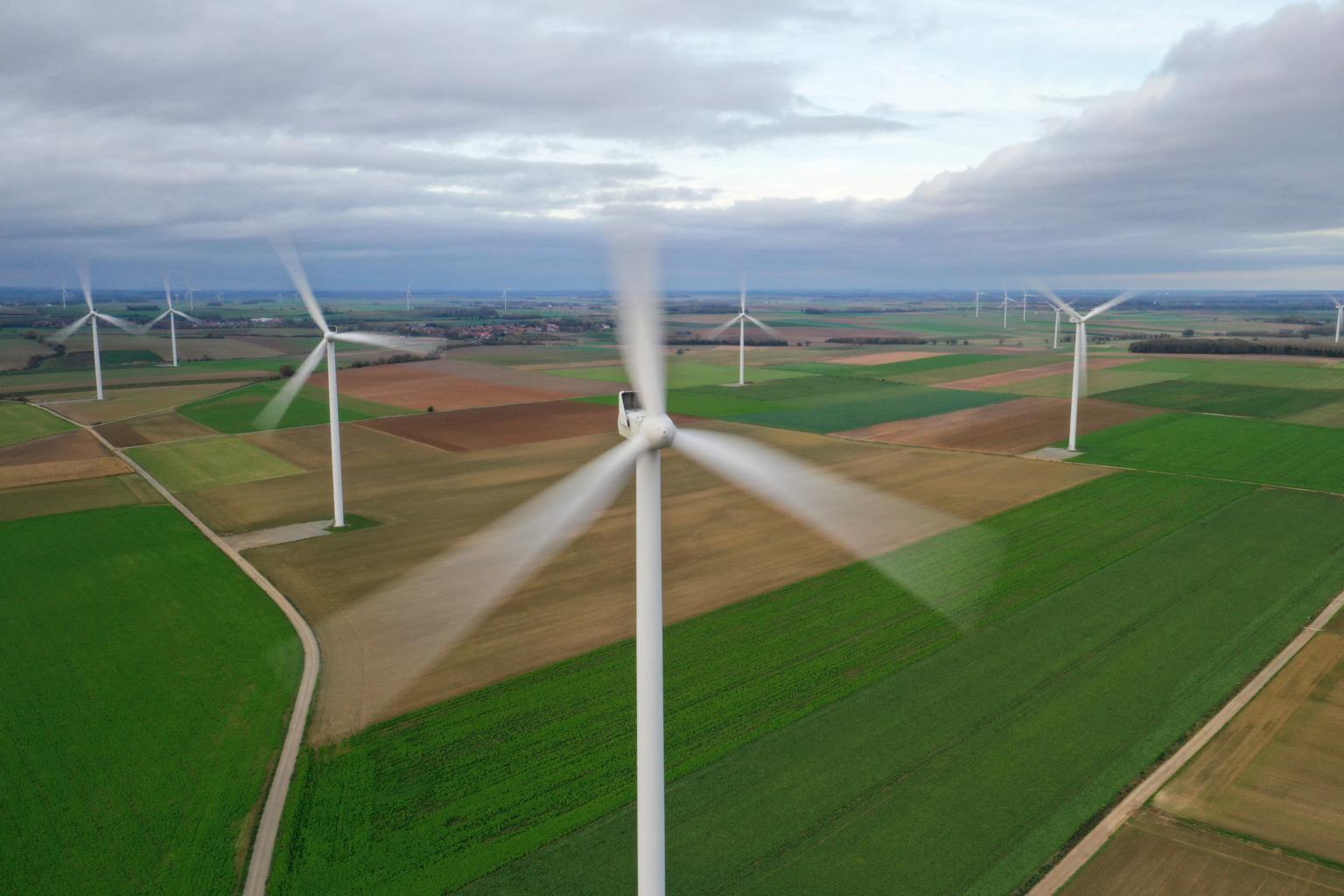ESG by the numbers: Sustainable investing set records in 2021
Sign up now: Get ST's newsletters delivered to your inbox

ESG assets are set to balloon to US$50 trillion by 2025.
PHOTO: REUTERS
NEW YORK (BLOOMBERG) - Even with the current market tumult, anyone who thinks ESG (environmental, social and governance) is a bubble might want to hedge their bets.
While definitions of ESG investing vary - it can mean putting your money in anything from a wind energy company to a Silicon Valley tech giant - assets are set to balloon to US$50 trillion (S$67 trillion) by 2025 from about US$35 trillion, according to estimates from Bloomberg Intelligence. The growth has been spurred by record-breaking fund inflows amid concerns about climate change and other societal issues.
Here is where investors are putting their money, and how profitable this trend is proving for the funds shaping the field.
1. Total Assets
ESG is upending the worlds of finance and investing as it moves from the periphery to the mainstream. Assets are poised to reach US$41 trillion by the end of this year, Bloomberg Intelligence estimates.
Growth in the United States is leading the charge after Europe had historically been at the forefront, the researchers said. ESG-related assets account for one in three dollars managed globally, industry group Global Sustainable Investment Association estimates. To be sure, there are market sceptics who question the accuracy of the data behind the asset estimates.
2. Sustainable Debt
ESG was born as an equities phenomenon, but the field known as sustainable debt has soared in recent years, with issuance exceeding US$1.6 trillion last year. The transactions bring the total market to more than US$4 trillion since inception. Sustainability-linked bonds and loans had a large role to play as the fastest-growing themes in the ESG fixed-income market.
3. Mutual Funds and ETFs
Money held in sustainable mutual funds and ESG-focused exchange-traded funds rose globally by 53 per cent last year to US$2.7 trillion, with a net US$596 billion flowing into the strategy, according to Morningstar.
The increase takes into account a revision in Europe, where regulators are imposing stricter rules to define what can be labelled a sustainable fund. The new classification resulted in more than 1,000 European funds being removed from the sustainable universe, the research firm said, adding that it expects to pull more funds.
4. Record Fees
Globally, the asset-management industry earned US$1.8 billion in fees last year from their sustainable funds, up from almost US$1.1 billion in 2020, Morningstar reported.
Historic inflows resulted in lucrative fees for the biggest sustainable fund managers led by Parnassus Investments, which topped the rankings with a record US$320.7 million of fees.
Morgan Stanley's Eaton Vance, which owns one of the oldest responsible-investing firms - Calvert Investments - was second with US$227.7 million of fee revenue.
BlackRock, which runs the world's biggest ESG exchange-traded fund, followed with US$116.5 million of fees from sustainable products sold by its iShares unit.


